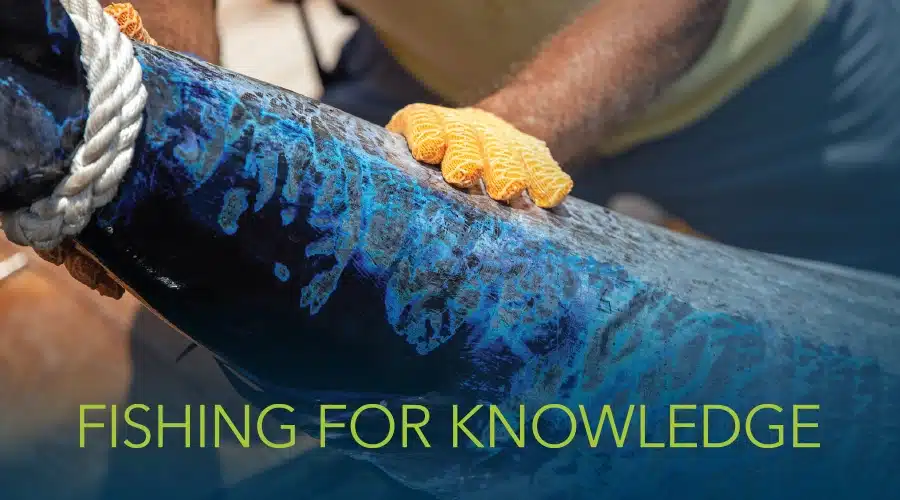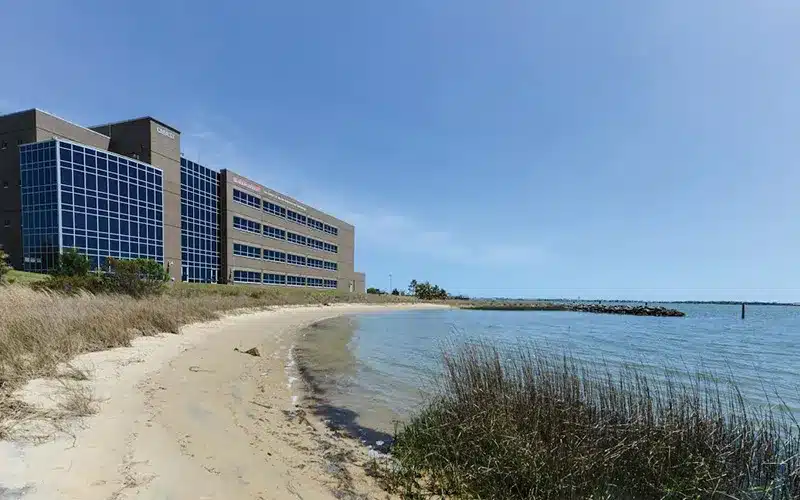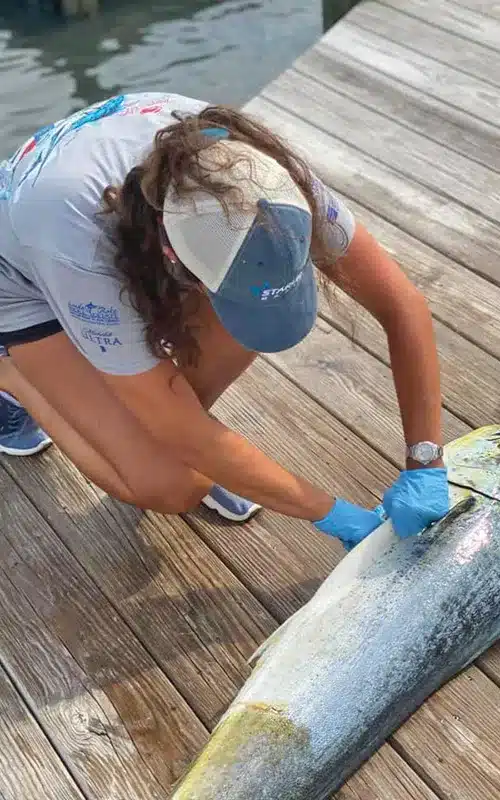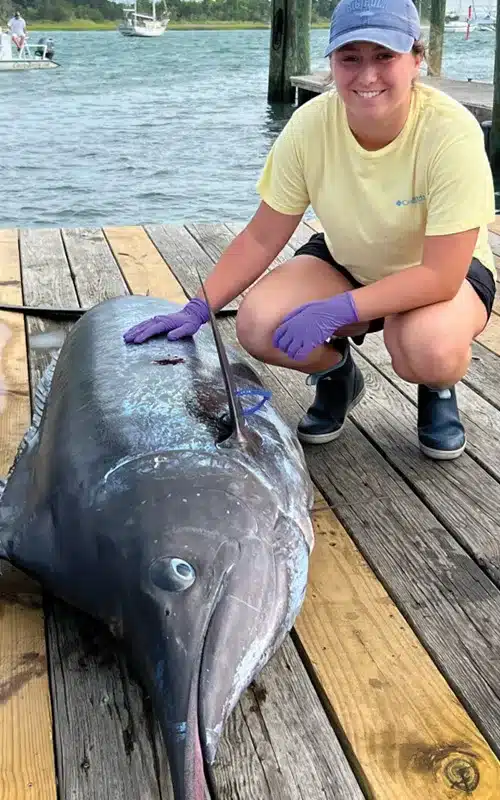
How CMAST and the Big Rock Blue Marlin Tournament Collaborate on Game Fish Research
At the forefront of collaborative research to build a sustainable future for the fishing industry and coastal communities stands NC State’s Center for Marine Sciences and Technology (CMAST). Located on the shoreline of Bogue Sound in Morehead City, North Carolina, CMAST plays an important role in progressing our understanding of marine ecosystems through environmental research, outreach, and management practices. Just a few of the programs focused on by CMAST include coastal and marine toxicology, marine ecology and conservation, fisheries ecology, marine metabolomics and seafood science.


One major body of water being actively monitored by the Center is at the heart of Bluewater Yacht Sales’s North Carolina territory, the Croatan-Albemarle-Pamlico Estuarine System, also known as CAPES. Spanning over 3,000 square miles of open water, these inshore waters serve as the country’s second largest estuarine system—only the Chesapeake Bay system is larger. Home to salt marshes, open sounds and other shallow estuarine areas, CAPES serves as a nursery area for 90 percent of the saltwater fish and shellfish found in North Carolina. With its proximity to the Gulf Stream and the wealth of data that can be collected from this expansive ecosystem, it’s clear that monitoring of CAPES is of paramount importance to anyone with a commercial or recreational interest in North Carolina’s fisheries.
However, CMAST’s efforts extend far beyond estuary systems to offshore pelagic habitats and species as well. Most notably, they’ve been partnering with the Big Rock Blue Marlin Tournament, where research and conservation efforts intersect with one of the most popular fishing tournaments in the world.
This data can be beneficial in understanding the diets, movement and health of each species and can be used to help inform fish and wildlife policy makers in important management decisions. Through this collaboration between citizens and scientists, fish observations and samples can help managers better balance the sustainability of each fishery while respecting recreational and commercial interests.
Additionally, CMAST is actively researching emerging environmental concerns, such as the accumulation of microplastics in marine organisms, including blue marlin. This research underscores the opportunities to study and address contemporary challenges in marine conservation via partnerships in the recreational fishing industry.

In turn, CMAST has become one of the many beneficiaries of the impressive charitable funds raised by the Big Rock tournament, with the 2023 event giving back over $1.6 million to a variety of deserving organizations. Initiatives like these highlight the importance of collaboration and public engagement in marine conservation and demonstrate how scientific research can inform and enhance sustainable management practices of our fisheries and ecosystems and make our coastal economies more resilient.
“As Bluewater Yacht Sales strives to help steward the marine resources that support our livelihoods and bring us all so much joy, CMAST has emerged as an ideal organization for us to support,” says General Manager Wyatt Lane. In addition to our sponsorship support of the Big Rock tournament, Bluewater is excited to be leading a Safe Harbor Members Event to the CMAST facility in June of 2024 to learn more about their programs and research.
For more information and to support CMAST’s many important initiatives, visit:
https://cmast.ncsu.edu/help-us-with-our-mission/